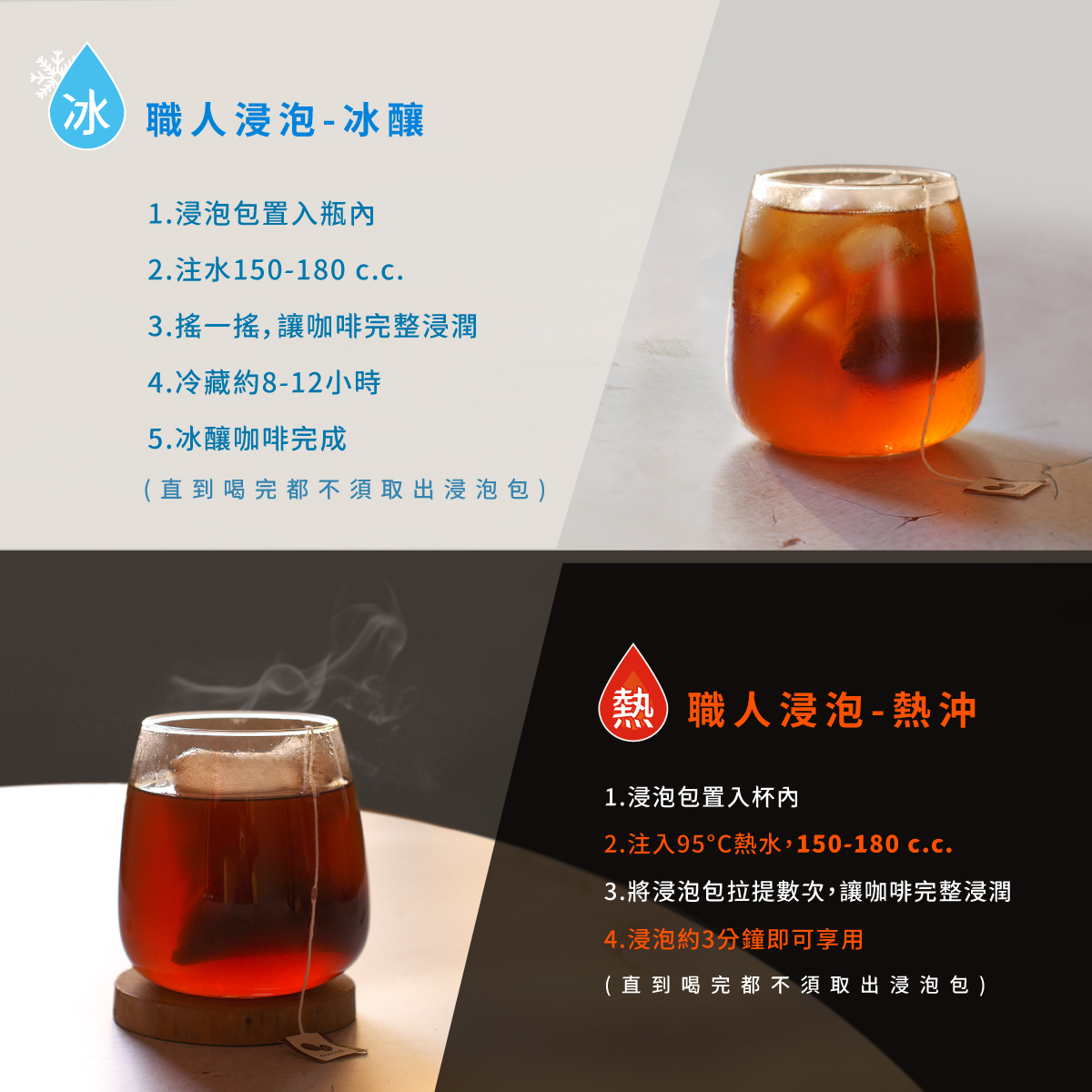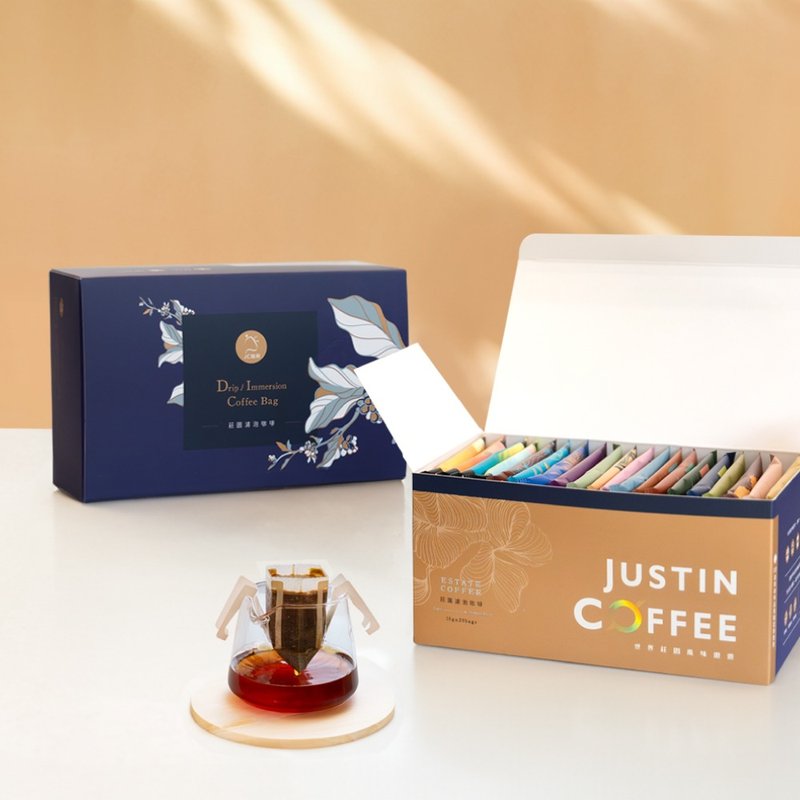
➤ Freshly roasted coffee beans store
➤ CQI coffee quality appraiser checks
➤ Million-level coffee bean screening machine removes defective beans
➤ Deoxygenation and Freshness Preservation





🔸Twenty boutique estate filter coffee gift boxes (including bag)
Gift box contains:
● Single estate filter coffee x 12 types
● Manor Recipe Craftsman Taste Filter Hanger x4
● Manor Recipe Craftsman Steeped Coffee x4
※Includes Panama Emerald Manor Green Label Geisha/Geisha (original price $370/bag) and
Taiwan Alishan (original price $120/bag), Colombia San Jose Manor (original price $150/bag) and other popular manors
-------
● Packaging: Manor filter coffee x 20 bags (10g per bag)
● Packing size
- Gift box: length 20 x width 12.5 x height 10 cm
- Bag: Length 20.6 x Width 10.4 x Height 20 cm
● Shelf life: one year (deoxygenation equipment packaging, unsealed like freshly ground) Please see the packaging for details
※Ordering instructions: Convenience store pickup can only take up to 5 boxes, and does not include other items (please choose home delivery if you order more than 6 boxes)




‧ Buy more and save more‧
Buy 1 set $820/set
Buy 2 sets $810/set
Buy 3 sets for $799/set
Buy 4 sets for $789/set
Buy 5 sets for $779/set
Original price: $1750/set






Coffee originated in Ethiopia in Africa. The areas around the world suitable for coffee growing are between 25 degrees north and south latitude, including the equator. The annual rainfall in coffee-growing areas must reach 1,500 to 2,000 mm and match the flowering cycle of coffee trees. In addition, there must be fertile soil, sufficient light and a suitable altitude. The conditions for growing high-quality coffee are quite strict, including: sunlight, rainfall, soil, temperature, as well as the way the coffee beans are harvested and the process of processing, all of which will affect the quality of the coffee.
JC Coffee strictly selects world-renowned coffee producing areas and insists on using high-quality single estates to make filter coffee, including: Costa Rica, Guatemala, Honduras, Ethiopia, Kenya, New Guinea, Indonesia Sumatra, etc.

Botanically, the coffee tree is an evergreen tree belonging to the Rubiaceae family, subgenus Coffea. Coffee beans are the seeds of the coffee tree fruit, of which there are three major varieties: Arabica, Robusta and Liberica. All the world's fine coffee comes from the Arabica species, and within the Arabica species there are various subspecies of Arabica coffee, including evolution, hybridization, and mutation.
JC Coffee carefully selects various Arabica subspecies to make filter coffee, including: Heirloom, Bourbon, Typica, Caturra, Pacas, SL28 SL34, Tim Tim, Catuai and other world-renowned boutique coffees.
JC Coffee will print the bean variety information on the packaging bag, so that you can know which bean variety you are tasting when drinking coffee. Although the flavor will vary depending on many factors, at least we can get a taste of a corner of the vast world of bean varieties.

Coffee Processes
It refers to the process of turning ripe red fruits into dried green beans. Each processing method has its own advantages and disadvantages, and is affected by the natural environment and different needs of the production area. Therefore, each production area has its own suitable processing method, which is summarized as follows:
【Sun-drying method】Natural / Sundried / Dry Processed
Also known as natural drying method and non-water washing treatment method, it is the most traditional and common processing method, and no water is used in the process. Originated in Ethiopia, the collected coffee berries are dried in the sun and then shelled, with the seeds still inside. During the long exposure process, they absorb the flavors of the peel, pulp and pectin, making the coffee sweeter and mellower and easier to create a unique aroma.
Coffee producers place all of their cherries in the sun on drying beds that consist of terraces or on elevated drying tables. Over the course of 3-6 weeks, the coffee will ferment and producers will turn them to dry evenly and prevent spoilage. During this time, the sugars in the fruit and the pectin attached to the seeds develop flavor and make them sweeter. After the coffee is dried, a machine is used to separate the dry pulp and skin from the seeds. Natural processed coffees are juicy, syrupy and well worth the effort.
【Washed method】Washed / Wet Processed
Also known as wet processing, before drying, all coffee fruits will be removed from the skin and pulp, and then soaked in water in a fermentation tank for fermentation to remove the pectin film remaining on the seeds. They are then washed with water and dried in the sun or by machine. The washed coffee has a cleaner, crisper taste than the natural coffee, and is lighter in body than the natural coffee. It usually has a brighter flavor, rich acidity, and fruity flavor, and is usually easier to distinguish.
【Honey Process】Honey / Pulped Natural / Semi-dry Process
The honey process is a combination of sun-drying and washing, and was first developed in Costa Rica. The process is similar to the water washing method, in that after removing the peel and pulp, a fermentation tank is not used, but the pectin membrane is left exposed to the sun. Honey treatment does not mean adding honey. Honey means it comes from a very sticky pectin layer, and the sticky feeling is like honey, so it is called honey treatment. The pectin layer retains a high proportion of sugar and acid and is the key to honey processing. The amount of mucus left behind determines the sweetness.


│ How to brew filter coffee

│ Immersion coffee brewing method

Made by Justin Enterprises Ltd.
Tel: 03-358-6611
Address: No. 30, Lane 120, Daxing Road, Taoyuan District, Taoyuan City
▶ Our company's products have been insured with 10 million product liability insurance
▶ Food business registration number: F-165601955-00000-0
▶ Coffee Quality Identifier CQI Q Grader Cupping Quality Control
















